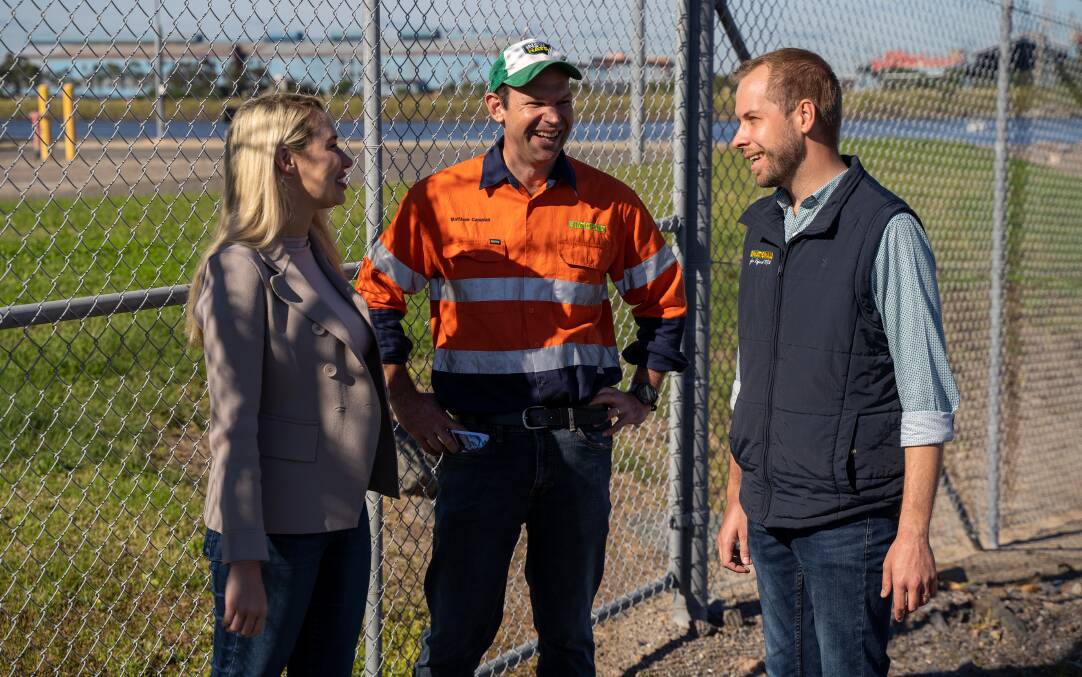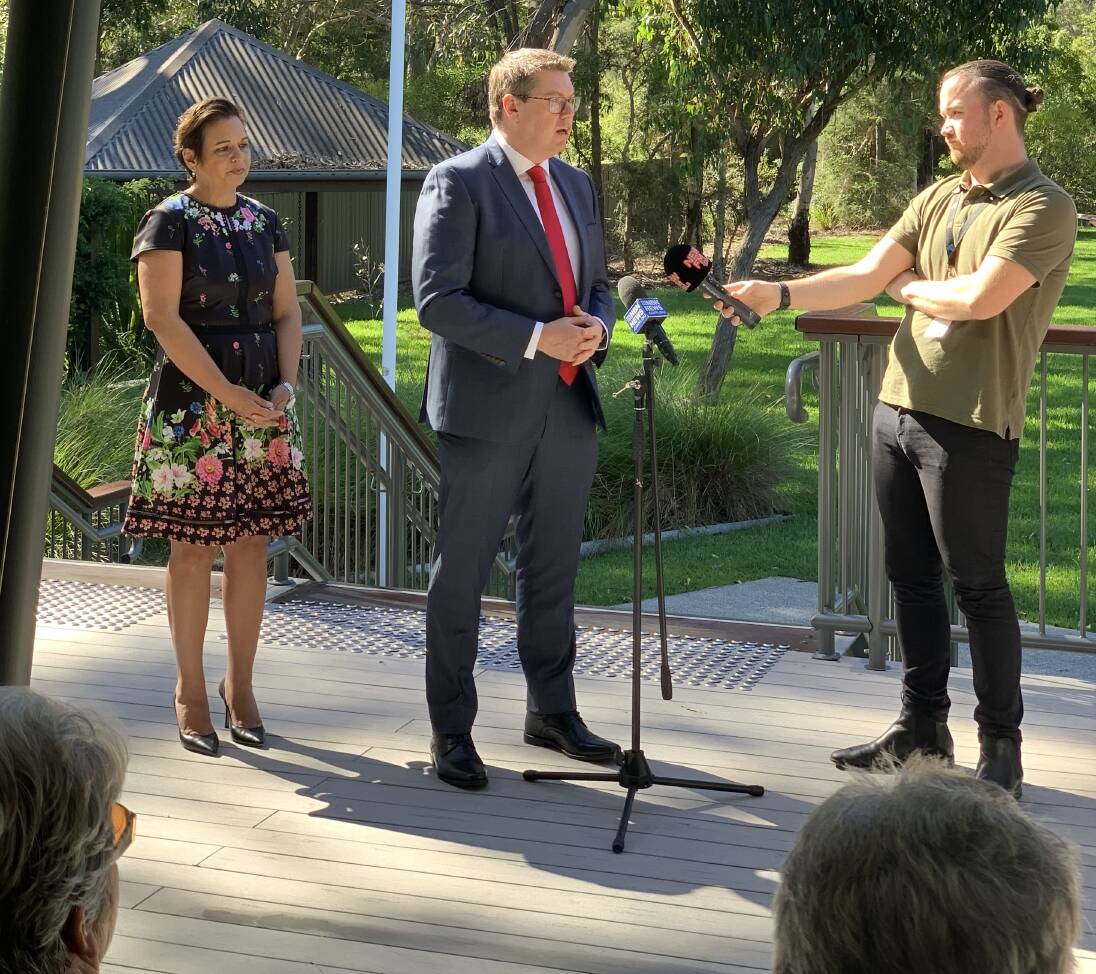
HIGH-PROFILE National Party Senator Matt Canavan and Labor assistant climate change spokesperson Pat Conroy clashed heavily yesterday over the impact of emissions reduction policies on the Hunter coal industry.
Senator Canavan was at the Mount Pleasant open-cut mine at Muswellbrook when he said "Labor's higher emissions reduction targets will hit over 200 of Australia's largest energy users and producers, with Hunter Valley businesses and workers in the firing line".
Referring to a list of businesses including Tomago Aluminium and 15 coalmines exporting from Newcastle, Senator Canavan said they and their 10,000 employees would be hit by a Labor policy he insisted was "a carbon tax".
He also accused Labor of selling pro-renewables messages in the capital cities and telling regional voters they were pro-coal.
He said comments supporting coal from Mr Conroy were at odds with those of Labor's climate spokesperson, Chris Bowen, who he said was pushing a carbon reduction scheme that would force Hunter and Queensland coalmines to buy carbon credits.
"They can't have it both ways," Senator Canavan said.
"If the intend cutting emissions by 43 per cent by 2030 as opposed to our 26 to 28 per cent, then they have to include energy intensive industries.
SEEING RED: Coalition ad attacking Labor on coal and emissions reduction
"But they can't do that, and exempt coal at the same time. That's the conflict. Either their modelling is wrong, or coalmines will have to buy carbon credits. It's that simple."
Responding, Mr Conroy defended Labor's policy and said it was "an absolute disgrace" for Senator Canavan "to come to our town and spread fear and scare workers".
"We have no plans along those lines," Mr Conroy said. "Our policy is to support coalmining and more importantly to support coalminers."
He said Scope 3 impacts from burning export coal were counted in the countries buying from Australia.
"Otherwise it would be double-counting," Mr Conroy said, referring to the three types of emissions used worldwide in greenhouse gas accounting.
RELATED READING: Labor rejects power price rise claim
"About 80 to 90 per cent of our coal is sold overseas, so the future of those mines will be determined by board decisions in Tokyo, in South Korea, in India, and China."
Scope 1 covers direct emissions - so-called "fugitive" emissions of methane in coalmining - and Scope 2 is the CO2 equivalents used in production, in coalmining mainly electricity and diesel emissions.
Mr Conroy said Labor's emissions reduction policy exempted "trade exposed" industries including coal, in that coal companies would not have to reduce their emissions unless other coal-producing countries - he named Indonesia, Mongolia and Mozambique - did likewise.
"To ask coal mines to reduce their emissions if there was no requirement for their international competitors to do so would be counterproductive," Mr Conroy said.
"It could lead to sending jobs overseas without any emissions reduction, and we won't do that."
POLICY DETAIL: Labor's Powering Australia policy
Mr Conroy said Labor's emissions reduction policy was unveiled in December last year and he referred the Newcastle Herald to Page 31 of the 52-page document, Powering Australia, (reproduced above) which he said included the protections for the coal industry that had emerged as the topic of controversy yesterday.
"Within a broad trajectory towards net zero by 2050, Labor will ask the Department of Industry and the Clean Energy Regulator (which already administers the scheme) to determine revised baselines for each facility in close consultation with industry," Powering Australia says.
"They will carefully consider the available and emerging technologies in each sector.
"Labor will provide tailored treatment for emissions-intensive, trade-exposed industries.
"This will be based on the principle of comparative impact ensuring that exporters remain competitive, and that emissions do not leak overseas."
Mr Conroy acknowledged that this section did not refer to the coal industry by name.
He said 'trade exposed" mines still had a rationale to reduce emissions because they could then sell their emissions reduction credits to other businesses covered by the scheme.
Asked about Tomago Aluminium, Mr Conroy said that if "trade exposed" it would only need to match the reductions of its international competitors.
He said Labor policies would cut emissions by 43 per cent by 2030, hit net zero by 2050, create 604,000 jobs, cut power bills by $275 a year and lead to a grid powered 82 per cent by renewables.
RELATED READING: Power and the Passion
NOTE: The original version of this article incorrectly said the top photograph was taken at Mount Pleasant mine, Muswellbrook.








